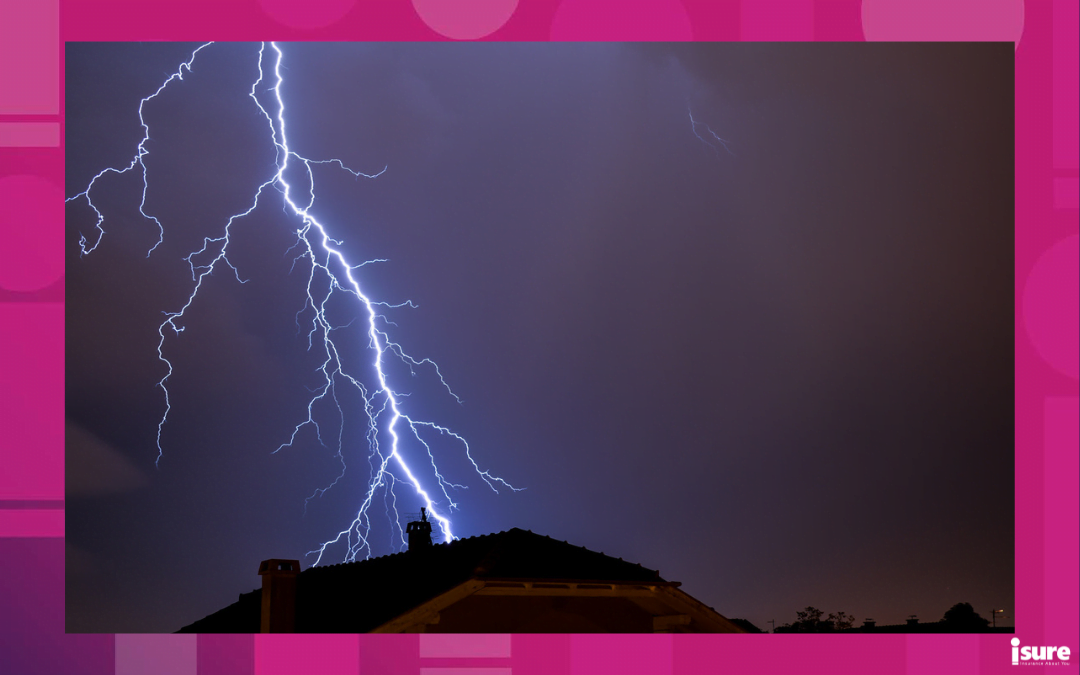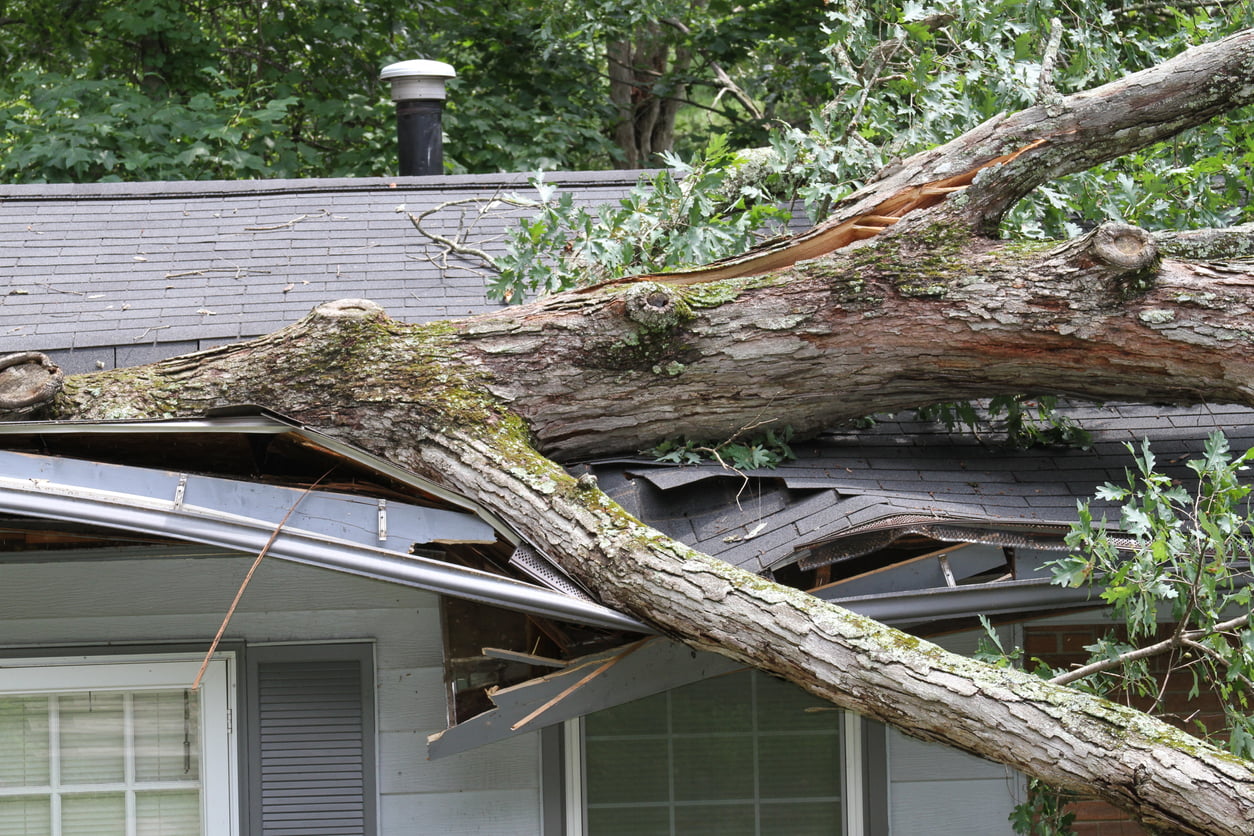Everyone has experienced a heavy storm at one point in their lifetime. Sometimes, the rain and wind can even be comforting and relaxing. However, what happens when thunder and lightning become apparent? Unfortunately, lightning can be a bit more than just startling. In fact, it can actually cause severe damage to your home. If you live in Southern Ontario, you’re also more likely to face lightning strikes as opposed to the rest of the country. So the question remains; do you have lightning coverage?
Windsor, Chatham-Kent, London, and Sarnia each saw roughly 150,000 lightning strikes between 1999 and 2013, according to Environment and Climate Canada. From fires to explosions, the damage lightning can do is nothing to disregard. So, what happens in the event your home gets hit by lightning? Luckily, isure has everything you need to know when it comes to lightning insurance coverage.
Is damage by lightning strikes covered by insurance?
In the event that lightning decides to make your home a target, there is good news and bad news.
The bad news is that unfortunately, lightning can cause some serious damage to contents both inside and outside of your home. Not only can they damage antennas and other parts of your home, but electrical currents can also surge through your home and damage your home’s circuits, as well as some of your favourite electronics. From refrigerators to televisions to your new Xbox, if it’s plugged in when lightning strikes, it is unfortunately at risk.
However, the good news is that most standard home insurance policies will cover most if not all damage caused by lightning! So, if your favourite electronic seems to be toast, it may be recovered. Alternatively, you will be paid out the present value of the damaged electronic. How you will be reimbursed will depend on the details of your home insurance policy. Another piece of good news is that many home insurance policies will also include living expense costs in the event you need to move out while your home is being repaired due to lightning damage.
What causes an electrical surge?
Though electrical surges won’t destroy your home entirely, they are a huge culprit when it comes to damaging electronics and valuables. An electrical surge occurs when power is briefly cut during a storm, something that everyone has experienced at some point or another in their lives. The surge occurs when your power resumes at a higher-than-normal voltage. As a result, the electronic circuit boards of your favourite appliances are damaged. Generally, this occurs when lightning hits satellite dishes, power lines, or telephone wires. The act of bigger electronics, such as your fridge, turning on and off can also be enough to cause a power surge, though it is unlikely. That’s when lightning insurance coverage comes into play.
What happens if lightning strikes my home?
So, you’ve been the culprit of a lightning strike, what should you do? Well, your first move should be to make sure all your electronics and appliances are safe. This can be done by turning them on and off and making sure they are all still in working condition. If the unfortunate happens and you find one of your electronics no longer works, they may have been affected by an electrical surge. If this is the case, set them aside or leave them until your insurance company can take a look at them to assess. At this point, it is important to call your isure broker and let them know what has occurred.
During the waiting period, make sure you have some proof of ownership for any big-ticket items you will be claiming. Some examples of this include receipts, warranties, or photos of serial numbers. DO NOT under any circumstances discard any damaged items. If you find multiple items or your home is damaged beyond just electronics and appliances, make sure to create a list of the prices of your belongings. You will also need to note what you will need to pay to repair your home.
How to reduce damage from lightning strikes
If you want to take extra precautions when it comes to staying safe from lightning strikes, there are many precautions you can take. First and foremost, you will want to install a home surge suppressor. This is an item that is installed between your hydro meter and the electrical panel. A home surge suppressor keeps extra voltage from entering your power lines, preventing electrical surges.
Another item you can purchase is a point-of-use suppressor. This is an item that looks similar to a power bar and offers individual protection to the specific appliance or electronic is used on. Though these can help prevent electrical surges, they will not fully protect you from electrical surges caused by lightning.
If you would like to go the extra mile, a full lightning protection system may be the answer. This will include the items mentioned above, as well as a series of copper rods installed on your roof. These are designed to completely intercept lightning strikes. These rods are connected to other rods that are buried in the ground. This directs lightning into the earth and minimizes any damage done to your home. It is also important to make sure you don’t have any trees that are over 10 feet tall in your yard. These can attract lightning and cause it to jump from the tree to your home.
Lightning coverage: The bottom line
Despite all of this, sometimes mother nature is uncontrollable. This is why it is important to report any damage done by lightning as soon as possible. Contact your isure broker to discuss your lightning coverage as soon as possible, preferably before it strikes. Contact us or request a quote today!




